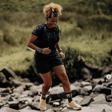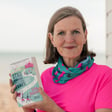
Jonny Huntington
Jonny Huntington is an elite para-skier, climber and explorer. A former British Army Officer and ultra-distance runner, he had a brain bleed in 2014 that left him paralysed from the neck down on his left side. Following extensive rehabilitation and discharge from the Army, he returned to the world of elite sport as a disabled athlete, competing for GB in Cross Country Skiing. He is now setting his sights on becoming the first ever disabled person to travel from the edge of Antarctica to the South Pole solo, unsupported and unassisted. The South Pole expedition is not just a personal challenge for Jonny; it's about breaking boundaries within the disabled community and inspiring the world to recognise the limitless potential within each of us.
Follow Jonny on Instagram here



















